IRP Seminars will be in person meetings this semester, unless otherwise noted. Connection information for virtual seminars will be sent out, in advance, to the IRP Seminar email list.
September 8, 2022
 Subsidized Housing within a Welfare Rights Framework
Subsidized Housing within a Welfare Rights Framework
Rahim Kurwa, Assistant Professor, Departments of Criminology, Law, and Justice and Sociology, University of Illinois at Chicago
12:15-1:30pm, 8417 William H. Sewell Social Sciences Building
Recording of this seminar is available on the IRP YouTube Channel
September 15, 2022
 Who Increases Emergency Department Use? New Insights from the Oregon Health Insurance Experiment
Who Increases Emergency Department Use? New Insights from the Oregon Health Insurance Experiment
Augustine Denteh, Assistant Professor, Department of Economics, Tulane University
12:15-1:30pm, 8417 William H. Sewell Social Sciences Building
Recording of this seminar is available on the IRP YouTube Channel
September 22, 2022
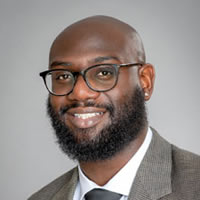 Social Determinants of Health: Structural Racism, Racism-Related Stress, & Future Directions for Research and Policy
Social Determinants of Health: Structural Racism, Racism-Related Stress, & Future Directions for Research and Policy
Myles Moody, Assistant Professor, Department of Sociology, University of Alabama at Birmingham
12:15-1:30pm, 8417 William H. Sewell Social Sciences Building
Cosponsored with UniverCity Alliance.
September 29, 2022
 Beyond Borders: Does Firm-Level Exposure to State and Local Paid Sick Leave Mandates Lead to Corporate Policy Adoption?
Beyond Borders: Does Firm-Level Exposure to State and Local Paid Sick Leave Mandates Lead to Corporate Policy Adoption?
Daniel Schneider, Professor of Public Policy, Harvard Kennedy School, Harvard University
12:15-1:30pm, 8417 William H. Sewell Social Sciences Building
Recording of this seminar is available on the IRP YouTube Channel
Wednesday, October 5, 2022
 Lunch & Learn Talk
Lunch & Learn Talk
The Impact of Application Streamlining on Participation in the Supplemental Nutrition Assistance Program
Sarah Charnes, National Poverty Fellow, IRP/Division of Data and Improvement, Office of Planning, Research, and Evaluation
12:15-1:30pm, 3470 William H. Sewell Social Sciences Building
October 6, 2022
 COVID-19-Related Inequities among Black Pregnant Women and the Importance of Community Health Workers
COVID-19-Related Inequities among Black Pregnant Women and the Importance of Community Health Workers
Gwen Donley, National Poverty Fellow, IRP/Office of Community Services, Administration for Children and Families
12:15-1:30pm, 3470 William H. Sewell Social Sciences Building
Recording of this seminar is available on the IRP YouTube Channel
October 13, 2022
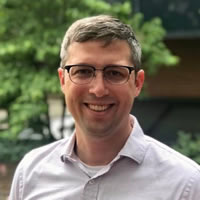 The Impact of Financial Sanctions: Regression Discontinuity Evidence from Driver Responsibility Programs in Michigan and Texas
The Impact of Financial Sanctions: Regression Discontinuity Evidence from Driver Responsibility Programs in Michigan and Texas
Mike Mueller-Smith, Assistant Professor, Department of Economics, University of Michigan
12:15-1:30pm, 8417 William H. Sewell Social Sciences Building
Recording of this seminar is available on the IRP YouTube Channel
October 27, 2022
 Second Killings: How Gun Homicide Covictimization Alters Neighborhood Perceptions among Street-Identified Black Women and Girls
Second Killings: How Gun Homicide Covictimization Alters Neighborhood Perceptions among Street-Identified Black Women and Girls
Brooklynn Hitchens, Assistant Professor, Department of Criminology and Criminal Justice, University of Maryland
12:15-1:30pm, 8417 William H. Sewell Social Sciences Building
November 3, 2022
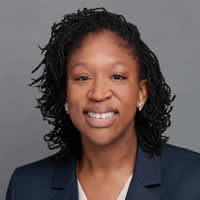 Abusive State Preemption and the Production of Economic and Health Inequality
Abusive State Preemption and the Production of Economic and Health Inequality
Courtnee Melton-Fant, Assistant Professor, Division of Health Systems Management and Policy, University of Memphis
12:15-1:30pm, 8417 William H. Sewell Social Sciences Building
Recording of this seminar is available on the IRP YouTube Channel.
November 3, 2022
 Robert J. Lampman Memorial Lecture
Robert J. Lampman Memorial Lecture
Children and the US Social Safety Net: Balancing Disincentives for Adults and Benefits for Children
Hilary Hoynes, Professor of Public Policy and Economics and Haas Distinguished Chair in Economic Disparities, University of California, Berkeley
Time & Location: 4:00 pm, Pyle Center, Alumni Lounge – Reception to follow the lecture.
Recording of this lecture is available on the IRP YouTube Channel.
November 10, 2022
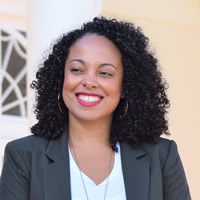 Stolen Opportunities of Fatherhood: The Racialization and Criminalization of Parents in the Child Support System
Stolen Opportunities of Fatherhood: The Racialization and Criminalization of Parents in the Child Support System
Brittany Battle, Assistant Professor, Department of Sociology, Wake Forest University
12:15-1:30pm, 8417 William H. Sewell Social Sciences Building
Recording of this seminar is available on the IRP YouTube Channel.
November 17, 2022
NO SEMINAR – APPAM
November 24, 2022
NO SEMINAR – Thanksgiving
December 1, 2022
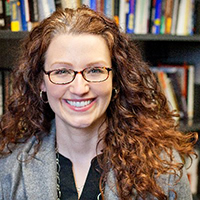 Diaper Dilemmas: Parenting in Poverty and Basic Needs Gaps in the U.S. Social Safety Net
Diaper Dilemmas: Parenting in Poverty and Basic Needs Gaps in the U.S. Social Safety Net
Jennifer Randles, Professor and Chair, Department of Sociology, California State University, Fresno
12:15-1:30pm, 8417 William H. Sewell Social Sciences Building
Recording of this seminar is available on the IRP YouTube Channel.
One in three families with infants and toddlers in the United States struggles with diaper need, the inability to access enough diapers to keep a child dry, comfortable, and healthy without sacrificing other household necessities. Drawing from in-depth interviews with more than 70 mothers struggling with diaper need, this talk will focus on what diapers mean to families living in poverty and how mothers manage diaper need through what I call diaper work. The talk will highlight mothers’ experiences seeking diaper support and their recommendations for effective diaper assistance policies that align with their lived experiences of diaper need and diaper work to reveal how we can collectively address this serious basic needs gap in the current U.S. social safety net.
Wednesday, December 7, 2022

Lunch & Learn
Foster Family Characteristics and Children’s Educational Outcomes
Emma Kalish, PhD Candidate, Department of Economics, Johns Hopkins University
11:00am–12:00pm, 7142 William H. Sewell Social Sciences Building
Roughly 6% of US children are removed from their home at least once to be placed with a foster family or in a group home. Foster care aims to prevent some of the worst disinvestments in children’s human capital, such as abuse and neglect, but is an inherently destabilizing intervention. Improving stability for children in foster care through productive placements is therefore of policy interest. I examine the impact of foster care placements on children’s human capital accumulation as measured by short-run educational outcomes such as school attendance and suspensions. The placements I consider include group homes and foster families, either relatives (kinship placements) or unrelated foster families. While previous research has focused on the extensive margin of foster care placement, I include multiple treatments to identify causal effects of placement types, with a focus the differential impacts of unrelated families who are of the same race versus a different race. I use administrative data from Wisconsin containing unique information on providers and children and identify the model with caseworker propensity instruments. I find that while both foster homes and kinship placements improve outcomes relative to group care, kinship care leads to the largest reductions in suspensions and increases in attendance. However, considering all foster placements together obscures important heterogeneity. Placement with a same-race foster provider increases attendance and decrease suspensions relative to both non-race-matched foster care and kinship care for non-white children. To investigate channels, I study the effects of provider income and school stability. I provide suggestive evidence that same-race families tend to be those that lead to less upheaval in a child’s life. These findings suggest that demographic match is one potential way to improve match quality in the foster care program.
December 8, 2022
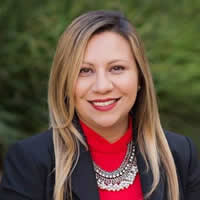
The Latinx Paradox and Homelessness: The Invisible Housing Precarity of Farmworking Families in the Midwest
Deyanira Nevarez Martinez, Assistant Professor, School of Planning, Design, and Construction, Michigan State University
12:15-1:30pm, 8417 William H. Sewell Social Sciences Building
Recording of this seminar is available on the IRP YouTube Channel.
There has long been a suggestion in social science research that Latinx communities are not as affected by their economic marginalization as they should be, they call this “The Hispanic Paradox.” The reality, however, is that this “paradox” has only served to obscure many social ills in the community, including the state of Latinx housing precarity. The number of Latinxs identified through homeless counts is often much lower than one would expect given the population’s poverty rates. And while recently there has been some recognition of a surge in Latinx homelessness, there are still misunderstandings about what this looks like. This stems from issues such as language barriers, fear of deportation, migratory labor patterns, and doubling up that often hide housing precarity in plain sight. This results in this population being less likely than other ethnic groups to be engaged by homelessness outreach and accessing the services they need.